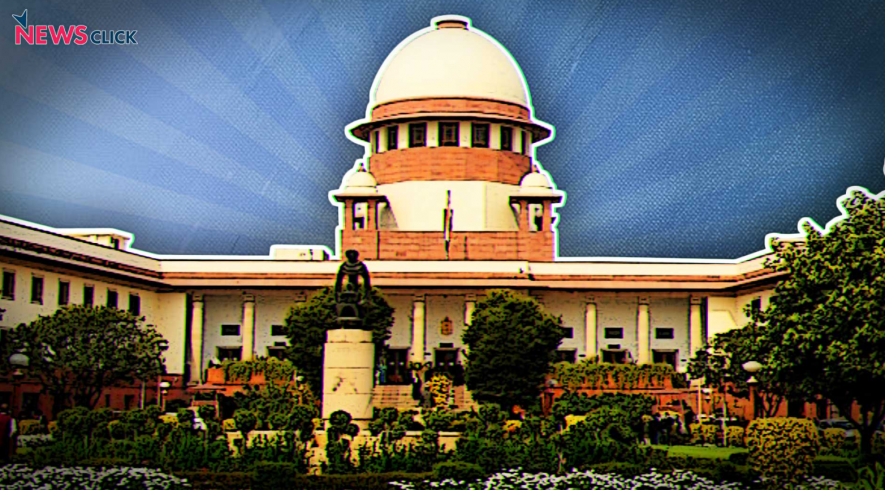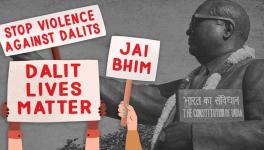Delhi-Centre Services row; AAP Govt Seeks Clear Demarcation of Power, SC Reserves Verdict

New Delhi: The Aam Aadmi Party-led Delhi government Wednesday sought a clear “demarcation” of its power in the row with the Centre over control of services from the Supreme Court which reserved its verdict on the vexatious issue.
A five-judge Constitution bench headed by Chief Justice DY Chandrachud heard Solicitor General Tushar Mehta and senior advocate A M Singhvi for the central and the Delhi governments respectively for almost four-and-half days before reserving the verdict.
At the outset of the proceedings, the solicitor general, after some persuasive arguments, was permitted by the bench, also comprising Justices M R Shah, Krishna Murari, Hima Kohli and P S Narasimha, to file additional submissions on behalf of the Centre to seek reference of the Delhi-Centre power dispute to a larger bench of nine or more judges.Singhvi concluded his rejoinder submissions by saying, “I hope the boundaries are clearly demarcated in black and white this time.”
He said the existence of civil services board in Delhi shows that the national capital is not on par with other union territories (UTs), which do not have such services boards.
“A picture is being presented that the national capital is being hijacked. The problem is the other side is equating Parliament with the central government. Parliament can make any law but here it is an executive notification on services (which is under challenge),” he said while concluding his submissions.
Prior to his submissions, the solicitor general had said that a “crafted perception” has been created that the Delhi government has no powers.
He had said, “My fundamental submissions are that we cannot lose sight of the fact that we are dealing with the capital of the nation and the central government has a huge part to play in its administration.”
He said services and the control over them are not applicable to union territories (UTs) at all.
"The union territory represents and is the extension of the Union and hence, there is no concept of federalism between the Union and its extended area,” he said.
The top court, on Tuesday, observed orally it was difficult to accept the Centre's submission that the concept of federalism does not apply to a union territory as even ‘panchayats’ are an example for “decentralisation of power”.
“It may be difficult to accept your (Centre’s) submission that federalism only applies to states and the Union. There may be a different degree of federalism between UTs and Union. It may not have all features of federalism but may have some,” it had said.
“Some characteristics of federalism are prevalent even in relations with UTs. Even in ‘panchayats’, the concept of federalism is reflective of the need of the local government, decentralisation of power,” the bench said.
Singhvi had said “I am seeking what is rightfully mine, my legislative rights in Entry 41 (State public services; State Public Service Commission) of the State list. I seek all my legislative rights under all entries of the State list minus three entries (Public order, Police and Land).”
Singhvi had also said he was seeking all executive powers in relation to the entries under the State List where the Delhi legislative assembly is capable of making laws.
He had said the Delhi government wanted clarity on the issue of control of services in the national capital as even this court would not like the dispute to recur.
In one of the earlier hearings, the top court had termed “collective responsibility, aid and advice” as the “bedrocks of democracy” and said it will have to find a balance and decide whether the control over services should be with Centre or the Delhi government or a median has to be found.
The Constitution bench was set up to hear the legal issue concerning the scope of legislative and executive powers of the Centre and the National Capital Territory government over control of services in Delhi.
On May 6, the top court had referred to a five-judge Constitution bench the issue of control of services in Delhi.
The apex court had said the limited issue of control over services was not dealt with by the Constitution bench which elaborately tackled all legal questions on the powers of the Centre and the Delhi government in 2018.
"The limited issue that has been referred to this Bench relates to the scope of legislative and executive powers of the Centre and NCT Delhi with respect to the term services. The Constitution bench of this court, while interpreting Article 239AA(3)(a) of the Constitution, did not find any occasion to specifically interpret the impact of the wordings of the same with respect to Entry 41 in the State List.
"We, therefore, deem it appropriate to refer to the above-limited question, for an authoritative pronouncement by a Constitution Bench...," it had said.
Sub Article 3 (a) of 239AA (which deals with the status and power of Delhi in the Constitution deals with the law-making power of the Delhi Legislative Assembly on the matters enumerated in the State List or the Concurrent List.
The plea by the Delhi government arises out of a split verdict of February 14, 2019 in which a two-judge bench of Justices A K Sikri and Ashok Bhushan, both now retired, had recommended to the Chief Justice of India that a three-judge bench be set up to finally decide the issue of control of services in the national capital.
Justice Bhushan had ruled the Delhi government had no power at all over administrative services, while Justice Sikri made a distinction. He said the transfer or posting of officers in top echelons of the bureaucracy (joint director and above) can only be done by the Central government and the view of the lieutenant governor will prevail in case of a difference of opinion on matters related to other bureaucrats.
In the 2018 judgement, a five-judge Constitution bench had unanimously held that the Lieutenant Governor of Delhi is bound by the aid and advice of the elected government, and both needed to work harmoniously with each other.
Get the latest reports & analysis with people's perspective on Protests, movements & deep analytical videos, discussions of the current affairs in your Telegram app. Subscribe to NewsClick's Telegram channel & get Real-Time updates on stories, as they get published on our website.
























